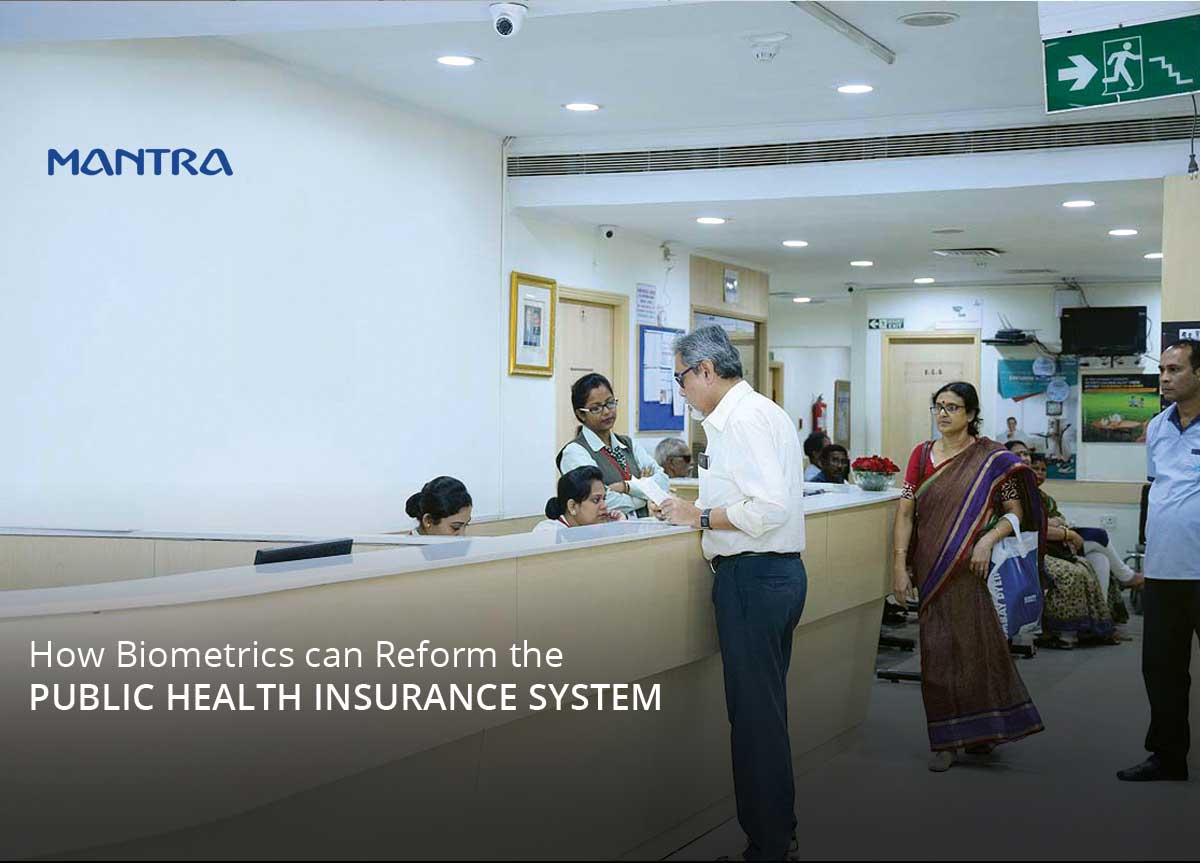
How Biometrics can Reform the Public Health Insurance System
Healthcare is deemed as one of the critical sectors in India as it deals with the wellness of citizenry. With the proliferation of state-of-the-art healthcare technologies, the expense of medical services is also skyrocketing, which becomes unaffordable for a large segment of the populace across the nation. There comes the role of public & private health insurance programs.
Currently, the Indian health insurance sector is facing several challenges related to incidences of medical coverage frauds and abuse, fake documentation, unreliable beneficiaries’ identification, etc. To tackle the health insurance obstacles pertaining to an individual’s identity, insurance carriers require the next-generation human identification technology i.e., Biometrics.
Implementing biometrics in the health insurance systems for recognizing claimants will not only bring transparency and efficiency in the insurance claim process but also has helps in:
1.Combating the health insurance fraud
In 2017, the former Secretary-General of the General Insurance Council of India revealed that as per the estimation around 10-12% of insurance claims recorded that year were fraudulent or suspicious. Fraudsters commonly commit the following insurance scams:

Medical identity theft
Paper-based patient records getting stolen
Fake or fabricated documents to meet policy terms
Purchasing multiple policies with different identities
Participating in fraud rings
Biometric identification is deemed as a perfect solution to fight against all these insurance scams as it offers 98% accuracy in recognizing the patients and confirming the fact that they are who they assert to be. Verifying patient’s biometric details like a fingerprint, facial, or IRIS images, rather than the existing variables of patient’s number, name, and DOB greatly decreases the chances of impersonation or misidentification.
2.Better patient profiling and efficient identification
Hospitals are one of the busiest places. In the year 2017, 25% of the Indian population was covered under healthcare insurance, which amounts to hundreds of millions of medical records, claim accounts, etc. Despite great efforts, almost 10-15% of medical insurance claims, amounting to around INR 600 crores (over US$90 million) were fake, leading to unauthorized benefits to another party.
Thus, verifying claimants' identity using biometric fingerprint, IRIS, and facial recognition technology will not only assist in reducing frauds by identity theft but also will help in better patient profiling for insurers/healthcare providers.

3.Accessing the patient’s records securely & instantly

Hospitals and healthcare insurers require verifying patients’ healthcare records for insurance reimbursement, payment schedules, etc. However, patients’ healthcare/medical records are the most crucial sensitive private data that needs to be protected and accessed securely by authorized person only. Aadhaar-enabled biometric scanner devices reduce the risk of unauthorized patient data access as it biometrically identifies an individual before letting him access a patient’s personal identifiable information/medical records.
Apart from providing paramount security, biometric authentication grants instant access to patient’s healthcare records without any need of carrying out a time-consuming search through the pile of papers.
The Way Ahead
When human identification seems critical, biometric identification is the way forward. As the latest biometric technology has already made its way into the public healthcare industry through various government flagship health insurance programs like the world’s largest Govt. funded healthcare scheme - Ayushman Bharat Yojana and Chief Minister’s Comprehensive Health Insurance Scheme (CMCHIS), the Indian Healthcare Biometrics market will witness an immense boost in the future.
Comments